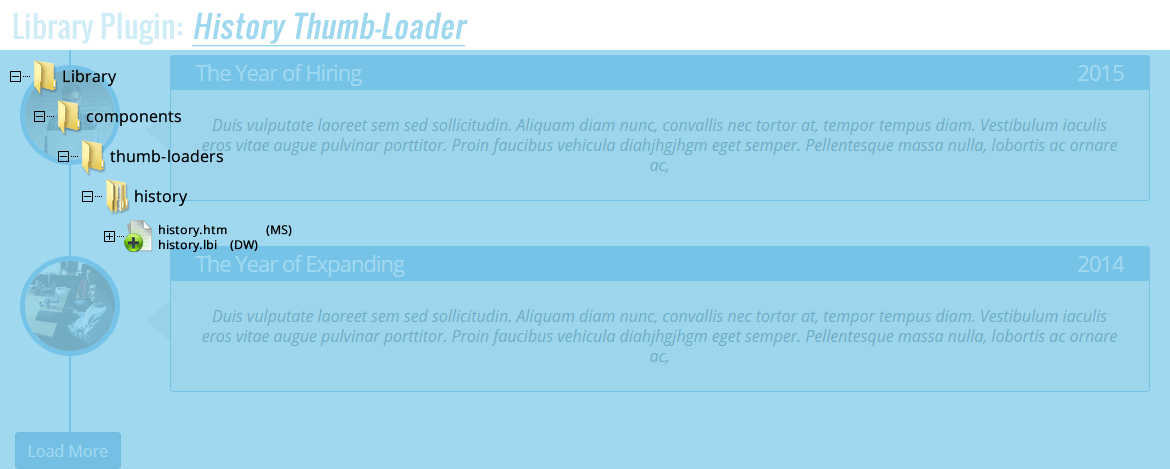By Pastor Robert L. Donnelly
Today’s lesson has these two great features: Obedience and Blessing. That's the core of Deuteronomy, really. Blessing follows obedience. It doesn't come beforehand; it follows. There's something about obedience that I wanted to mention. Obedience to the Law of Moses brings a set of blessings different from obedience to the New Testament. If we follow New Testament regulations, we're blessed; but it's not quite the same as the Old Testament. In our Scripture reading this morning, we're promised grass – lots of pasture – lots of cattle – to be really prosperous in the things of this world. If you're going to depend on that, you might have some difficulty. We lived in southern Saskatchewan in the Drought. And, Christian farmers were just as dry as the non-Christian farmers. Their farms dried out. They had to leave. (They might have claimed the promises of Deuteronomy, but most of them didn't. We knew we’re under a different covenant.)
This matter of Obedience got my attention. Read the verse in Hebrews 5:8 (We're still sticking to Hebrews in order to explain the Old Testament: “Though though He was a Son (speaking of Jesus), yet He learned obedience by the things which He suffered.” This, to my mind, is one of the most difficult passages of Scripture. I'm not going to make any attempt to explain how it could ever be said of Jesus that “though though He was a Son, yet He learned obedience by the things which He suffered.”
He didn't learn to obey. It doesn't say that He learned to obey. He learned Obedience. To obey has to do with an action; obedience has to do with an attitude. An attitude of obedience . . . We read much the same thing in Philippians 2:8 “He became obedient unto death, even the death of the cross.”
Now, this cuts across some attitudes we may have formed; that blessings – benefits – are always joyous and pleasant; that we really enjoy them to the full. And, if God blesses us, we can't want for anything more comfortable . . . But it's evident from Scripture that God blesses us with some things that we personally – physically – would rather do without. We think we could manage quite well without them; but there are some blessings that we need. We may think of “obedience unto death, even the death of the cross” in terms of “being obedient until we die.” That is, all through life we live a life of obedience. But that's not really the sense of this verse. Obedience leads to death right here and now. The Christian experience is not one that ends in death; it begins in death! The Christian experience begins with death.
“What?” "Don’t you know that as many of us as were baptized into Christ Jesus were baptized into His death?" (Romans 6:3). Did you know that? (I'm sure you did.) You must know it if you were baptized. Baptism is not just a figurative symbol that cuts us off from any grief or sorrow. It's a literal immersion into the historical death of Christ. We are immersed – we are baptized into His death.
So, I say, the Christian experience does not end in death, it begins with death and ends in a blaze of everlasting glory. (Are you satisfied with that? Will that do?) It seems to me, that the whole tenor and teaching of the New Testament is a reversal of the Old. It just reverses it. Instead of having the blessed physical things first – things for the body first – we end with a new body – a brand new body.
Acts 26:19, you remember, Apostle Paul said: “I was not disobedient to the heavenly vision . . .” Now, what does that mean? It means he lived in obedience to that vision; to the revelation given him at his conversion. And that very obedience led him to a life of suffering. We don't like to talk about this, but obedience led him to a life of suffering, as far as the physical was concerned. He just had untold sorrows and physical torment. He really suffered. It cost something! And I think we ought to just be honest enough to face up to the fact that, if we're going to be obedient to God, it's going to cost us something too. It is SO! We're going to have to give up some things. We can get along without them . . .
It seems to me, the whole teaching of the New Testament indicates that obedience leads to suffering . . . Well, at least to separation. It leads to renunciation. It leads to giving up what the body wants, so that we may have what God wants us to have. For the body is opposed to the things of the Spirit. There's always a struggle between what the body wants and what God wants.
This morning some people would have been up half an hour earlier – if it hadn't been for the body. I've learned that sometimes the body seems to enjoy getting up so much that it'll do it three times before it finally makes it – before it finally gets going. It takes something to get it under control.
Colossians 3:5-6 “Mortify therefore your members which are upon the earth...” (Is that clear enough?) “... fornication, uncleanness, passion, evil desire, and covetousness, which is idolatry: for which things sake the wrath of God cometh on the children of disobedience.” What is the call to obey? Mortify! That means “put to death.” Don't argue with it. Don't negotiate. Put it to death!
It's too bad we wait so long, to find out that the remedy for the weaknesses we temporize and struggle with, is to put them to death. It would have helped so much if someone had told us, "Kill it! Just kill it!"
I think of DR. CHARLES PRICE's testimony . . . He was converted and filled with the Spirit in San Jose, California when AMY SEMPLE MCPHERSON was preaching. He got so "hungry" that he began to seek God. He got behind the piano – so nobody' see him – and began to lift up his heart with his hands to God in the heavens. And God began to come down and fill him with His Spirit. DR. PRICE began to shout and cry out and finally said, “Oh, God. You're killing me! You're killing me!” And one of the altar-workers, right beside him, said, “Amen! Kill him, LORD. Amen, kill him.” (chuckle) And he “died” . . . He entered into a new life.
You know, we look forward to death. It's going to solve a lot of our problems. But we don't have to wait so long. You can get it over with quick, if you have courage enough. (And it does take quite a bit of courage to just get it over with.) “Mortify therefore your members which are upon the earth.”
“If you live according to the flesh you will die; but if by the Spirit you put to death the deeds of the body, you will live” (Rom. 8:13). “And being found in appearance as a man, He humbled Himself and became obedient to the point of death, even the death of the cross.” (Philippians 2:8). Those who walk in the Spirit, follow the example of Jesus – and are obedient unto death. That is, the death that has separated them from the past life. They are no longer involved in the affairs of this life. They're living in another world. They're living in the Kingdom of God. And they're living in obedience to the will of God.
It does happen, sometimes, that to obey God’s will, calls for death to everything contrary to it. I was thinking of our own MARILYN BUSH – Missionary in Kenya. She pretty well spent her life growing up in a mission field and dedicating her life to the service of God as a young girl. Her obedience cost her something. It's doubtful if she'll ever marry. Very likely, she'll Never have the pleasure of having children . . .
We have those growing up among us who rebel against this teaching of "going out in a new direction," of "picking up the instruments of the new birth – the new life – and dying to the call of the body." The call of the body – well, that's a real call . . .
I think of VICTOR PLYMIRE, who spent at least 30 years in Tibet. He suffered untold physical hardships; buried his wife and a little baby by himself on a desolate hillside. No one to mourn his loss with him . . .
Is God cruel? Well, before we decide, let us go back to this verse again: “He learned obedience by the things that He suffered.” Our LORD learned obedience by the things that He suffered.
If you were to talk to these people, who have given up everything, they would be quick to tell you, “It was the best bargain I ever made. It was the best deal I ever got. God gave me wealth that I could never buy" – said by a person who's practicing “life after death . . .” (Did you ever think of that?) Practicing “life after death . . .” Put it into practice . . .
Well, that's what the Apostle Paul said: Romans 6:11 “Likewise you also, reckon yourselves to be dead . . .” Reckon yourselves to be dead. Practice it. When a call comes for some kind of service, and it's going to cost something – it may even hurt – ask yourself, “If I were dead, would it really matter? Would I feel this?” Obviously, not at all. Well, that is a very simple thing. Practice “living after death.” Amen.
God is not the God of the dead. He's the God of the living. And when we are baptized into His death, we are also baptized into His life. WE ARE! We're baptized into His resurrection life
Thank You, LORD. Heavenly Father, we thank You for the cross. Thank You for the call of the Gospel that leads us to the cross and through the tomb to resurrection soil. LORD, help us daily to practice Life- after-death. We pray in Jesus' Name. Amen. Amen.
Thank you very much, everyone.






 Load More
Load More

